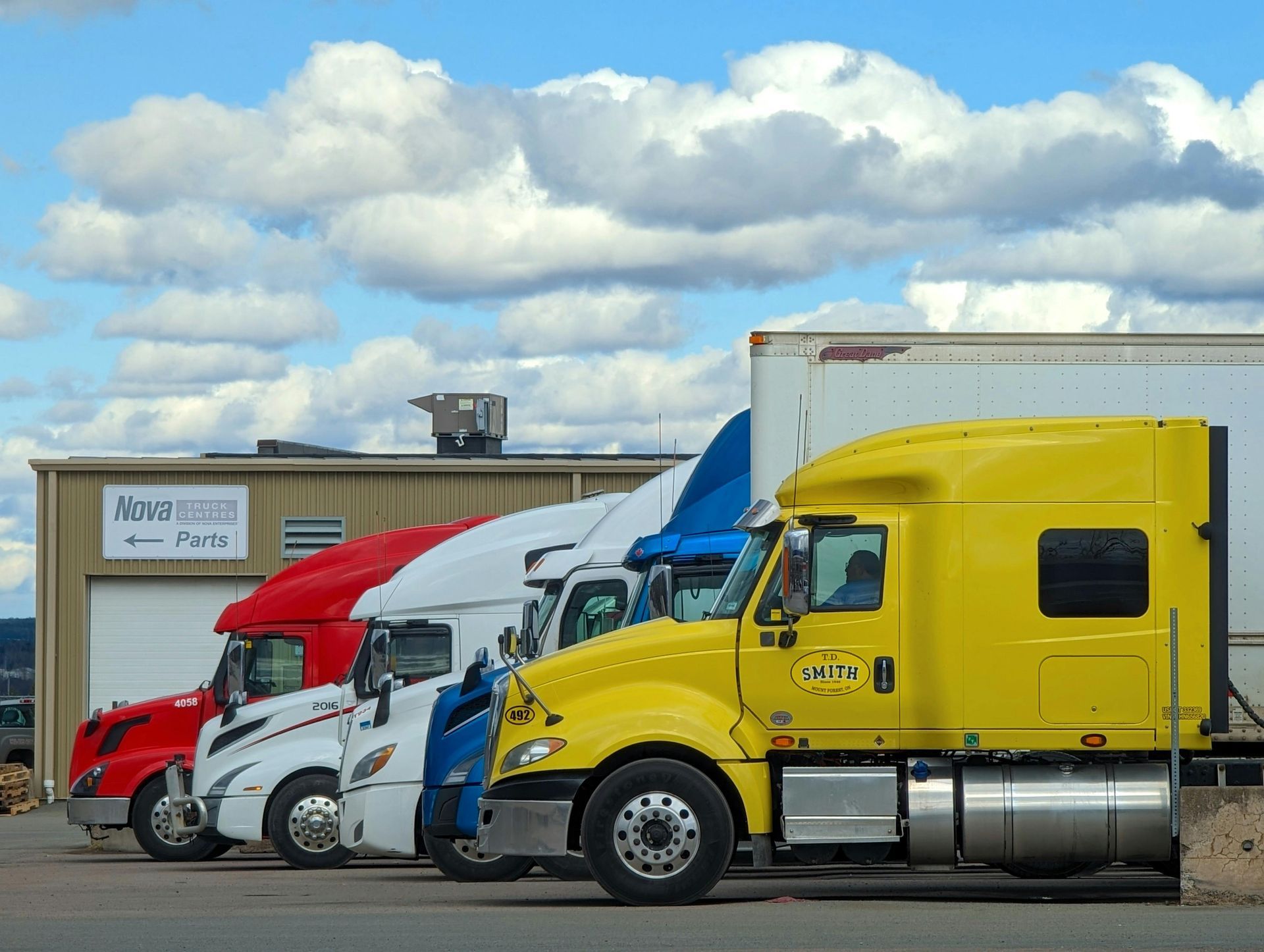Retirement Planning for Canadian Truck Drivers: It's Never Too Early

When you're behind the wheel day in and day out, retirement can feel like a distant mirage on the horizon. After all, there’s freight to haul, bills to pay, and miles to cover. But here’s the thing—retirement doesn’t happen by accident. It takes planning, saving, and making smart choices early on.
For Canadian truck drivers—especially owner-operators—there’s no company pension plan waiting at the end of the road. That means you’re the boss of your retirement, and the earlier you take charge, the smoother your ride into those golden years.
At Truckers Pro CPA, we’ve worked with countless drivers across the country, helping them turn unpredictable trucking income into reliable retirement plans. Let’s dig into your options and lay down a roadmap to long-term financial security.
Why Truckers Need a Different Approach to Retirement
Unlike traditional employees, truckers often don’t get consistent paycheques or employer-matched pensions. Income can fluctuate depending on fuel costs, load volume, and seasonal slowdowns. Plus, many truckers focus on reinvesting in their rig or business rather than putting money away for the future.
But even if you love the open road, there comes a time when you’ll want to slow down—or be forced to due to health or market changes. Having a solid retirement plan in place gives you options.
The good news? Canadian truckers have access to tax-advantaged accounts and flexible strategies that can turn today’s income into tomorrow’s peace of mind.
Start with the Basics: RRSPs and TFSAs
RRSPs (Registered Retirement Savings Plans)
RRSPs are the go-to for retirement savings in Canada, and they’re especially powerful for truckers in higher tax brackets. Here’s why:
- Contributions are tax-deductible—reduce your taxable income today
- Investments grow tax-deferred
- You’ll pay tax when you withdraw—but likely at a lower rate in retirement
The more you earn, the more powerful the tax break becomes. If you’re making strong money during peak season, this is a great way to keep more of it and build long-term wealth at the same time.
You can contribute up to 18% of your previous year’s income, up to the annual maximum (currently over $30,000, depending on the year). Even a few thousand dollars a year makes a difference over time.
TFSAs (Tax-Free Savings Accounts)
TFSAs are more flexible. You don’t get a tax deduction for contributions, but your investments grow completely tax-free, and withdrawals are not taxed—ever.
TFSAs are perfect for:
- Emergency funds
- Semi-retirement or part-time driving years
- Saving for a rig down payment while still building retirement wealth
You can contribute up to the current TFSA limit annually (around $7,000 depending on the year), and unused room carries forward. It’s like a sidecar for your retirement engine.
Owner-Operator Tip: Save When You’re Earning the Most
Freight markets go up and down. One of the best retirement strategies for truckers is to save aggressively during peak years. That might be a busy Q4, a stretch of high-paying direct contracts, or a year without major truck repairs.
Automate transfers into your RRSP or TFSA during these times. Even $500 to $1,000 per month during good stretches can build a serious cushion over the years.
Invest Beyond the Basics
Once you’ve maxed your RRSP and TFSA (or if you want to diversify), there are other strategies to grow retirement wealth:
Real Estate
Some truckers invest in rental properties or farmland as a second income stream for retirement. It requires upfront capital and good management, but it can create long-term passive income and capital appreciation.
Non-Registered Investment Accounts
If you’re already maxing tax-advantaged accounts, non-registered investment accounts let you invest in stocks, ETFs, or bonds. You’ll pay taxes on interest and capital gains, but you’re not limited by contribution caps.
Incorporation Strategy (For Incorporated Owner-Operators)
If you’ve incorporated your trucking business, you may also consider setting up a corporate investment account or deferring income through a holding company. These are more complex but can offer long-term tax advantages.
What About CPP and OAS?
Many truckers ask, “Isn’t the government going to help with retirement?” Yes—but don’t count on it alone.
🇨🇦 CPP (Canada Pension Plan)
You pay into CPP through self-employment contributions. If you’ve driven for decades, you’ll receive monthly benefits—but the average payout is only around $700 to $800 a month, far from enough to retire on comfortably.
🇨🇦 OAS (Old Age Security)
This is a universal benefit starting at age 65, but it’s income-tested. If you’re still earning or have a high retirement income, some or all of your OAS may be clawed back.
Moral of the story: use CPP and OAS as a base, but build your own savings to maintain your lifestyle.
Real Case: From Long Haul to Long-Term Planning
One of our clients, a 50-year-old owner-operator from Alberta, came to us with strong earnings but zero retirement savings. We helped him open an RRSP and set up auto-transfers of $1,200/month during peak months. He also opened a TFSA for backup savings.
Within five years, he had over $85,000 in retirement funds—and the tax deductions from the RRSP reduced his CRA bill by more than $9,000. He’s still working full-time, but now he’s doing it with a clear goal in sight.
How Truckers Pro CPA Helps Drivers Prepare for Retirement
We specialize in working with Canadian truck drivers to build smart financial plans that fit your lifestyle and income. From tax strategy to retirement account planning, we help you:
- Maximize RRSP and TFSA contributions
- Reduce taxes now while growing your savings
- Plan for semi-retirement or business exit
- Set achievable retirement goals—on your terms
Popular Posts

Marcel Coviciu
Marcel began his career working in operation and management for a major tire manufacturer. Then he transitioned into trucking, running his own business for 15 years and ultimately working his way through accounting school. Fascinated with the way logistics and financial management impact the profitability of businesses, Marcel loves sharing his expertise with other truckers.















